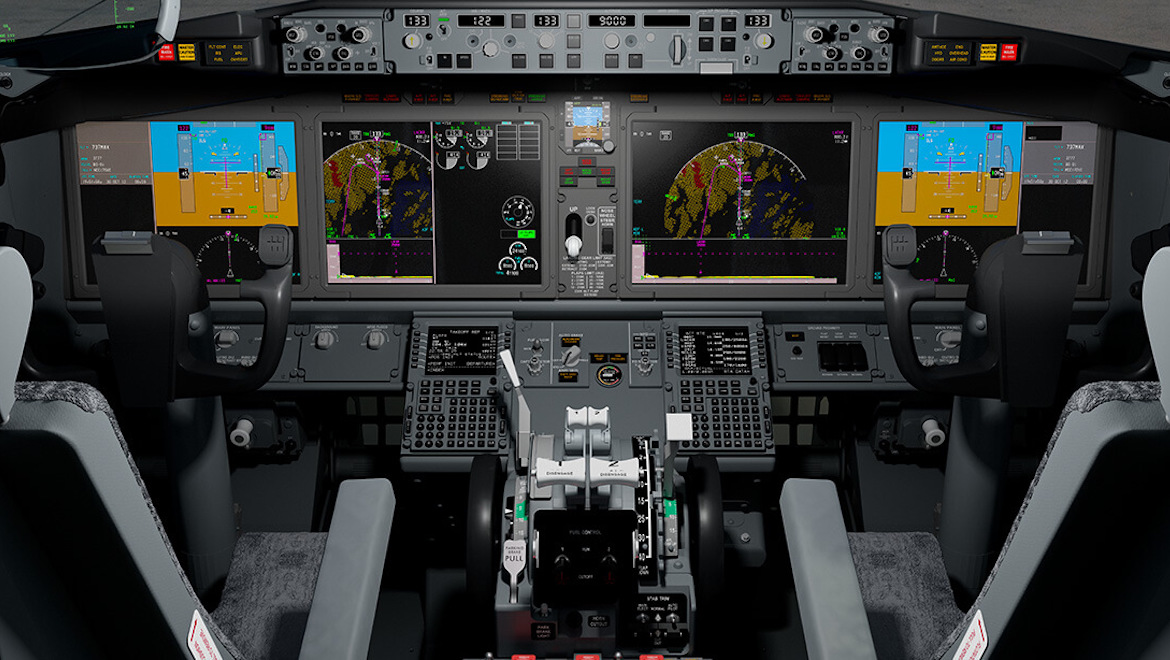Boeing says it has completed the software update for an anti-stall feature on the 737 MAX and is working with the United States Federal Aviation Administration (FAA) towards a certification test flight.
The company said in a statement on Thursday (US time) it has flown the 737 MAX with the updated Manoeuvering Characteristics Augmentation System (MCAS) software that has been implicated in two 737 MAX crashes for more than 300 hours on 207 flights. This was in addition to testing in a simulator.
“We are now providing additional information to address Federal Aviation Administration (FAA) requests that include additional detail on how pilots interact with the airplane controls and displays in different flight scenarios,” the Boeing statement said.
“Once the requests are addressed, we will work with the FAA to schedule their certification test flight and submit final certification documentation.”
The updated software provides additional layers of protection if the Angle of Attack (AOA) sensors provide erroneous data.
Boeing added MCAS to the 737 MAX as part of design changes to the aircraft to compensate for a stall risk from the installation of larger engines further forward on the wing compared with previous 737 versions.
MCAS software tells the flight control system to change its Angle of Attack (AOA) downward if a stall risk is perceived. It is designed to activate in manual flight, with the aircraft’s flaps up, at an elevated Angle of Attack.
The airframer began updating the software after the crash of a Lion Air 737 MAX 8 off Indonesia last October. The 737 MAX fleet was grounded globally after an Ethiopian Airlines 737 MAX 8 crashed on March 10. The two tragedies killed 346 people.
Boeing chief executive Dennis Muilenburg said the company was committed to providing FAA and global regulators with all the information it needed “to get it right”.
“We’re making clear and steady progress and are confident that the 737 MAX with updated MCAS software will be one of the safest airplanes ever to fly,” Muilenburg said in a statement.
“The accidents have only intensified our commitment to our values, including safety, quality and integrity, because we know lives depend on what we do.”
The FAA, global regulators, and airline customers were also reviewing enhanced training and education material developed by Boeing to support the 737 MAX’s longer-term operations after returning to service.
This included customer conferences around the world, the first held in Amsterdam on May 7.

FAA grilled
Boeing’s announcement about the software update followed the grilling of FAA acting administrator Dan Elwell by the US House Transportation Committee on Wednesday.
The committee questioned Elwell on the FAA’s certification and oversight of both Boeing and the 737 MAX.
FlightGlobal reported that Elwell conceded pilots should have known more about the 737 MAX MCAS flight control software that has been implicated as a factor in the two fatal accidents.
“When I first heard of this, I thought that the MCAS should have been more adequately explained . . . in the manual,” he said.
“There should have been more text in the manual about MCAS.”
Asked if MCAS was safety critical, Elwell replied: “It seems to me that, yes, it is.”
When asked why the FAA approved a system that could cause the aircraft to dive based on one faulty angle-of-attack (AOA) reading, he replied that pilots could counter MCAS by using a checklist “they should have in memory”.
Several investigations are underway in relation to the 737 MAX crashes, including a Joint Authorities Technical Review (JATR) panel studying the 737 MAX’s flight control system.
Also, Australia’s Civil Aviation Safety Authority (CASA) is part of that team of international authorities and other aviation experts that will begin a detailed review of certification of the MAX’s automated flight control system in a 90-day review. Its first meeting is on May 23.
VIDOE: Testimony of acting FAAA administrator Dan Elwell from the US House Transportation and Infrastructure Committee’s YouTube channel.











